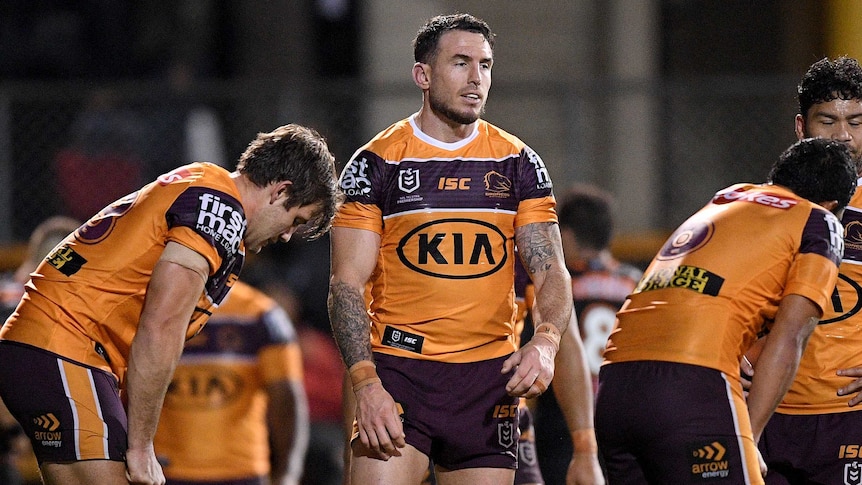Higher intensity, free-flowing rugby league is what fans can expect when the 2021 NRL season gets underway this week with eight new rule changes in action.
We got a glimpse at what the game will look like under the new rules that were announced in December across the three weeks of preseason trials.
A faster-paced game with minimal stoppages is sure to bring a more exciting spectacle for fans, however there has been some criticism that with that comes fatigue.
But for the most part, players, staff and fans are counting down the days until kick-off. Here are the new rule changes:
Two-point field goal
The most exhilarating games are those that come down to the final whistle. This additional point-scoring opportunity will give players a chance to collect two points for a field goal kicked outside the 40-metre line.
Loading
It has the potential to change the result in the final moments of the match while encouraging unstructured play.
Do you remember when Greg Inglis attempted a field goal back in 2016 in the dying minutes of their clash against the Dragons? If the two-point field goal system had been in play back then, Inglis would have sent the game into extra time, however the Bunnies were down 8-6 so it was added to the bloopers reel.
Six-again
How many consecutive six-again calls might we see this season?
Likely more than last year as players will no longer be penalised for 10-metre infringements but rather the referee will rule six-again.
As we saw last year with the six-again for ruck infringements, this too will keep play rolling and won’t allow teams to exploit a penalty in their efforts to slow the game down.
Loading
But for repeated offences of 10-metre infringements or in the case of professional fouls, referees will still have the ability to blow a penalty and sin-bin a player.
Not only was it a fan favourite last year but it might just be again this year with more opportunity to see the six-again call in action.
Scrums
Plenty of people question the validity of NRL scrums, yet the game’s powerbrokers insist they are still an integral part of the game.
As of this season, to ensure neither side is at a disadvantage, players will wait for the referee to call “break” once they deem the ball is out of the scrum. Only once that call has been made are players permitted to disengage.
For players who break early, a penalty will be awarded to the other team, who will have the option to take a tap or re-pack the scrum. If a scrum is re-packed and players break early again, another penalty will be awarded and one of the offending players will be sent to the sin-bin.
AAP Image: David Moir
)Play-the-ball restart
No more waiting for players who dawdle over to huddle for a scrum.
When the ball is kicked or carried into touch instead of a scrum, play will be resumed with a play-the-ball.
Bunker reviews
The Bunker. Some love it, some hate it.
But there is one positive we can begin the season with and that’s the fact that if the on-field referee believes a try is scored, he or she can instantly award it while the bunker reviews the decision in the background.
We will see less time being chewed up as a result of this change, however a conversion is not to be attempted until the bunker is satisfied that a try indeed has been scored.
Injuries
It’s one of the oldest tricks in the book, calling injury time to slow down matches, but the NRL says no more!
If a trainer requests that the referee stop the game for an injury timeout, the player that has gone down with the injury must either be interchanged or taken off the field for a period of two minutes while the ball remains in play. Once that two minutes of play has expired, the player may then return to the field.
AAP: Dan Himbrechts
)Incorrect play-the-ball
No more half-hearted play-the-balls either. Players must have a genuine attempt to play the ball correctly with their foot, otherwise the referee will rule a handover. The strict nature of this rule will ensure greater compliance with the rule and integrity around the play-the-ball.
Captain’s challenge
There wasn’t a game last season where we really saw the captain’s challenge have a drastic impact on the result of a match.
Fans, however, think it could and have expressed their frustration with teams losing a challenge where replays prove inconclusive. As a result, this season, when a captain’s challenge is inconclusive, the on-field decision will stand but the team will not be docked for an unsuccessful attempt.
AAP: Dan Himbrechts
)






